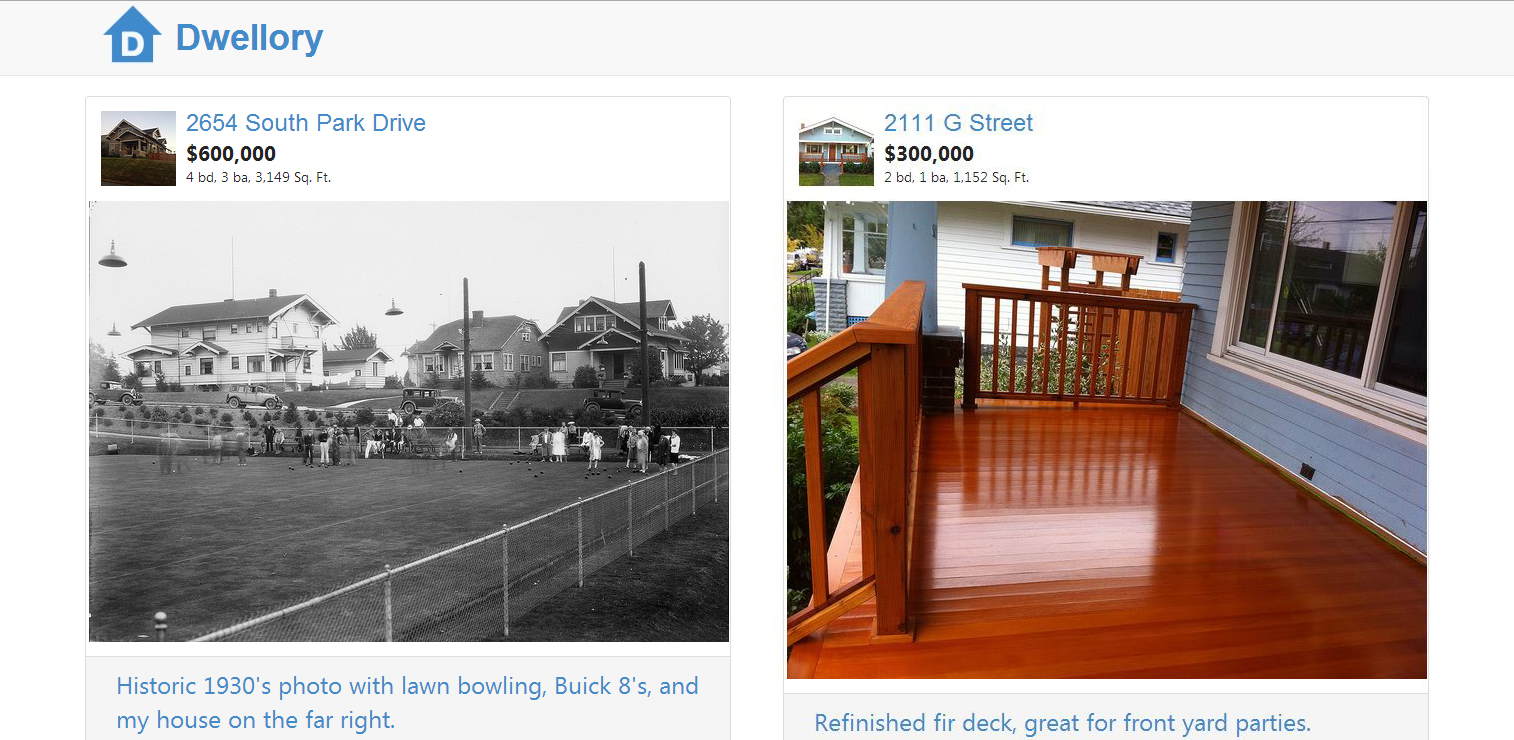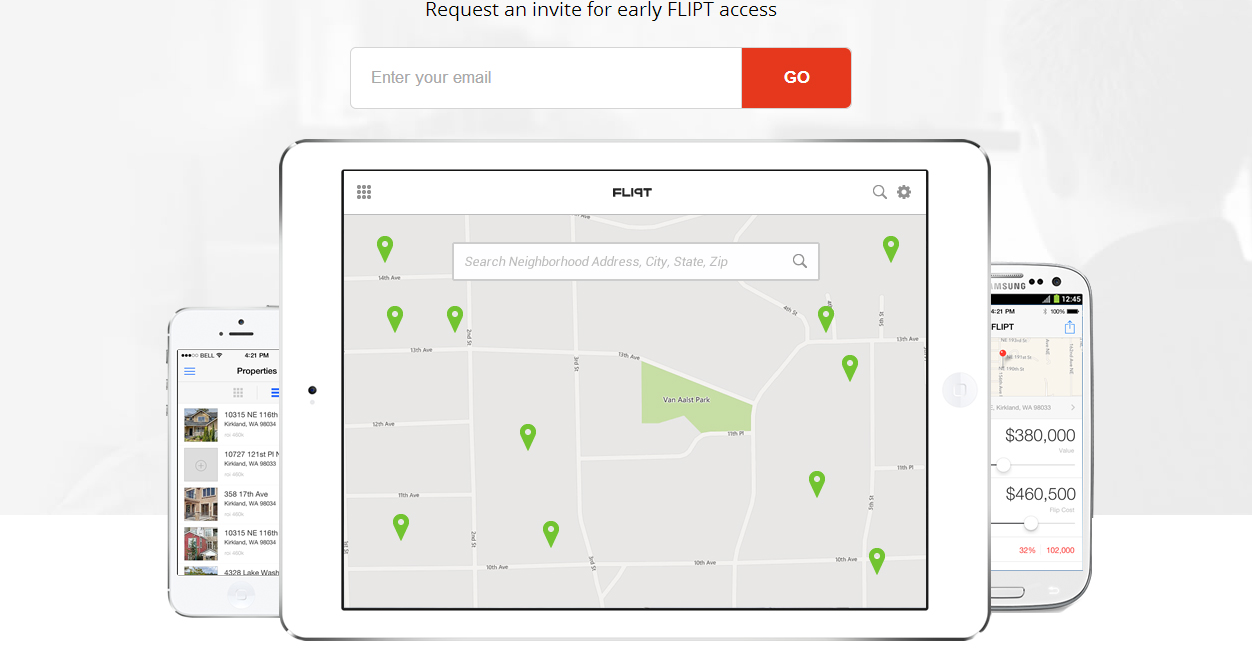
Exhibit one: real estate
We are living in an exciting era where products, services and industries are being innovated at warp speed. The next generation of “it” comes faster and faster. With improved speed, function, and experience comes with it some seriously increased customer expectations, and there are some verticals that can’t seem to keep up. Exhibit one: real estate.
![]()
For the last decade, dozens (if not hundreds) of start-ups have announced big plans to revolutionize the inefficiencies in real estate. Their promises have been to clean up the data, improve the agent-client relationship, open up the information and democratize the industry, save money on commissions, and more.
Looking back over the last ten years, can anyone honestly say that the process of buying or renting a home has dramatically improved? For perspective, take a moment to think back to ten years ago in other areas. What where mobile devices like in 2004? Video game graphics? The TV viewing experience? Mapping/GPS? Bank ATM machines? Even the experience at your dentist? Internet connections? Most people would freak out if they had to go back to products and services of a decade ago. When will real estate finally break through and see this kind of innovation and improvement? Will it ever?
Exhibit two: Blocksy
Will they provide the breakthrough that we haven’t seen in almost a decade (when Zillow was born)? Blocksy is a New York City start-up that promises better content, a cleaner website, more accurate information, and exclusive listings to help people have a much better experience buying or renting a home in NYC.
Have you heard this mission statement before? Me too.
So how is this effort different from its predecessors? For starters, they charge users $15 per month for a premium level of service and content. But let’s dig deeper…
Blocksy is currently focusing only on New York City. NYC is a totally different real estate market versus all other cities and towns across America. It’s part wild west (example: no formal MLS) and part oligarchy (example: a few huge RE brands control the market and seem to make their own rules). So the specific market definitely needs to be factored in any evaluation. Moving on, let’s look at Blocksy’s promises:
- Better Website. I agree. The site is clean, easy to use and makes it easy to digest data and information. It is easy to search for listings and content.
- Saving money. A testimonial on their front-page quotes a buyer who says she saved $200k by finding a unit in her desired building that only Blocksy had listed. I’m fairly certain that a halfway decent buyers agent would have done the same. I don’t believe you can count this as “Blocksy saving me $200k.”
- Exclusive listings. Right in the same testimonial from above, Blocksy is implying they have exclusive listings. Hmm. I have no idea how this can be true. If they do – maybe this is valuable in some rare situations. If they have exclusives on truly great buildings and/or properties, this would have some value. I just don’t believe they do or that they will in the future. If they some how accomplish this, I don’t believe it makes much of a difference for most all users anyway.
- Better content. They have some good data, especially for the sales market. They could use more information and detail, especially for the rental market (note that NYC is one of the few cities where the rental business can be very lucrative for agents/brokers). The information and charts are modestly better than I am used to for NYC, but it isn’t a dramatic leap forward.
- More frequent updates (hourly). I’m not sure that hourly updates make a big difference given the reality of the real estate market, but it certainly can’t hurt. This is more of a PR win versus a customer experience improvement, though.
- Better and more accurate listings and information. When I search the website, I see the same fuzzy, misaligned, and non-standard pictures, and I see the usual occasional typos, missing info, and bad data. If Blocksy can fix these issues it would be enormously valuable. They haven’t yet, though, and doing so will require a monumental paradigm shift. I don’t know how they can do it but I hope they prove me wrong.
- And finally, the pay-for-service model. Blocksy does offer free use of the site. The premium fee is apparently for faster service and exclusive content. I did not sign up for the premium service, so I cannot evaluate it. I can comment on the model itself, though. When people pay for something, it creates an implied value of that thing (be it a product or service). Perhaps, like a placebo, this will create a user base that values Blocksy more than other RE sites. When one gets past this nuance, though, this start-up is asking users to pay for something that they can get for free in lots of others places. This is a tough sell and I don’t like it.
My (early) verdicts
Consumer perspective: I will give the free version of Blocksy a try, along with a few other leading sites, if/when I need a new NYC home. I would even give the 1-day free trial for the premium service a test drive. I hope these guys are better at this stuff than others, but I’m skeptical.
Real estate agent perspective: If I were an agent, I would focus on already proven websites and strategies for lead generation and client servicing. If Blocksy gets traction and starts to prove itself, I would jump on board.
Investor perspective: If approached I will stay far, far away from Blocksy.
Good luck, Blocksy. I hope that you finally create breakthrough innovation for the real estate industry. But I bet you fall well short. As so does the next one of your kind.
Hoyt David Morgan is an entrepreneur, angel investor and business strategy leader. He is an investor and/or adviser to a handful of exciting and high growth companies, and has been a part of several high-value exits. He is passionate about customer experience, smart business and helping innovative companies grow... and sailing.








































